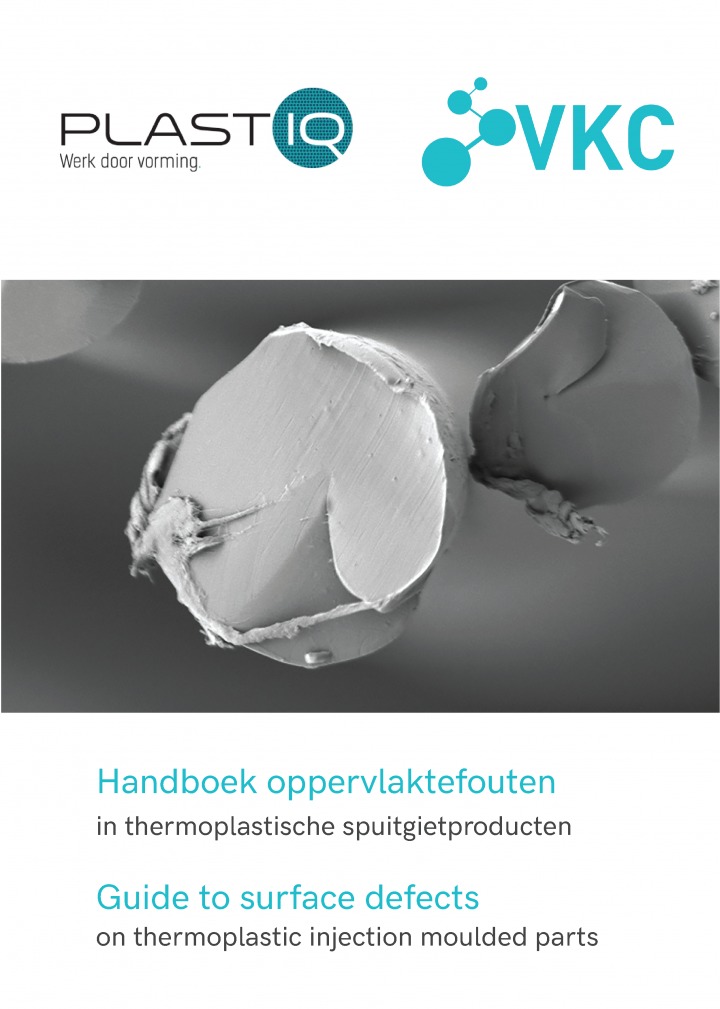Basic homepage.
Page not found
Overzichtspagina van de nieuwsberichten
Centexbel-VKC is division of Centexbel, the Belgian textile research centre, and is focused on services on behalf of the plastics processing industry.
With its semi-industrial pilot lines dedicated to the development of high-end products & efficient processes, Centexbel-VKC assists companies in the search of new, original and successful (niche) products and in the implementation of new technologies.
Centexbel-VKC has put in place several channels to share the knowledge and expertise it has acquired during numerous collective research projects, testing activities and international networking meetings.
Overview page of all Centexbel contacts.
Overview and search-page for the Centexbel Lexicon.
The testing or analysis of textiles and plastics - from raw material to finished product - by an independent and accredited laboratory not only results in a significant market advantage, but also shows respect for the safety, health and well-being of consumers.
This page provides an overview of our testing offer.
This page provides an overview of our testing offer.
The R&D activities of Centexbel-VKC support the textile, plastic converting and related companies with the explicit aim to reinforce the innovation capacity of small and medium-sized enterprises (SME) and to assist the industry in its transition to a sustainable future.
By accessing this page you'll find a complete overview of all ongoing collective research projects.
By accessing this page you'll find a complete overview of all ongoing collective research projects.
The Centexbel Patent-Cell supports SMEs in the textile sector with respect to patents and Intellectual property rights - IPR
In order to guarantee the free trade of construction products, the European Commission has issued the Construction products Regulation (EU) No 305/2011.
Centexbel is a notified body for conformity assessments in the framework of 2014/90/EU Marine Equipment Directive (MED)
Notified Body number : 0493
Notified Body number : 0493
Centexbel's fire laboratory is completely equipped to analyse the burning behaviour of textiles and to issue the necessary certificates.
All textile products, from fibre to finished product (apparel, sports article, car or aeroplane component...) have to meet very strict quality requirements during their entire life span.
The microbiological testing lab of Centexbel, located in Grâce-Hollogne, near Liege, is fully equipped to assess antibacterial and antifungal properties of (treated) textiles.
Centexbel-VKC policy on liability, copyright and processing of personal data.
Standardisation is the process of implementing and developing technical standards based on the consensus of different parties including companies, users, interest groups, standards organisations and governments.
The initiative of the FPS Economy, called standards cells aims at better informing SME's about the role and impact of standards within their companies as well as at promoting the application of standards.
What is Centexbel-VKC and what is our strategic policy
Centexbel, the scientific and technical research centre of the Belgian textile industry, is an institution recognised by the application of the Royal Decree of January 30th, 1947 (a.k.a. "Law De Groote"). Its mission - in close co-operation with Fedustria - is to promote research and technological development with the intention of enhancing the cost-effectiveness, quality and production capacity of the Belgian textile industry.
The composition and functioning of the General Council and Standing Committee are determined by the Centexbel Statutes.
Membership for the plastic converting companies: benefits and conditions
Centexbel-VKC’s pilot extrusion lines offer the industry a useful, cost and time efficient platform to evaluate the spinnability of new polymer grades and recyclates and the processability and properties of new masterbatches, to produce prototype yarns in view of further testing and to optimise the extrusion process
Additive Manufacturing (AM) involves a series of techniques to produce objects by adding materials layer per layer. Centexbel-VKC researches the possibilites of AM or 3D printing to functionalize and to customize conventionally produced textile and plastic objects.
Centexbel-VKC offers a plastic processing platform focused on material compounding, processing and on the characterisation of virgin and recycled polymers
The textile platform is an innovation laboratory, open to textile industrials wishing to develop products that are offering an answer to demanding (product) criteria and to create commercial opportunities in technical textile niche markets (energy, aviation, medical devices).
The Centexbel coating & finishing platform is composed of several semi-industrial and labscale surface modification, coating and lamination lines for prototyping purposes and to carry out experiments in the framework of collective and private research projects.
Centexbel-VKC supports the textile and plastic converting industry in their search and development of novel and quality products by offering a series of tools, including specialized tests, flaw analyses, technological and environmental advice, innovation support, information and brainstorming sessions and research projects.
Cookie policy
What are patents, and what's their use?
Products and services must meet regulated requirements which aim at guaranteeing their use in full safety. Meeting the specific requirements set out by ecolabels will market your brand as outstanding. Discover the different certifying systems for which Centexbel is accredited.
In a circular economy, the value of products and materials is maintained for as long as possible. Waste and resource use are minimised, and when a product reaches the end of its life, it is used again to create further value. This can bring major economic benefits, contributing to innovation, growth and job creation.
REACH is a regulation of the European Union, adopted to improve the protection of human health and the environment from the risks that can be posed by chemicals, while enhancing the competitiveness of the EU chemicals industry.
Itinerary by means of google maps and the Techlane navigator
Recycling plastics is more than needed to save our planet from being taken over by waste
A business model refers to the way a company creates and captures value. The features of the model define the customer value proposition and the pricing mechanism, indicate how the company will organize itself and whom it will partner with to produce value, and specify how it will structure its supply chain.
Information on the latest environmental legislation of importance to your company, and so many more eco-related issues.
The Centexbel carpet testlab offers a wide range of floorcovering tests to ensure that the products are safe and meet the legal requirements as well as the industry specifications. Centexbel is a Notified Body (# 0493) for EN 14041 and assists in CE marking requirements under the EU CPR - Construction Products Regulation (305/2011).
The plastic characterisation lab in Kortrijk is complemented by the Centexbel laboraties in Zwijnaarde and Grâce-Hollogne to offer a complete range of plastic related tests and evaluations.
Accreditation is a tool to facilitate the free circulation of goods and services and to ensure the safety of consumers
A standardized system of graphic symbols has been developed in order to make the classification and to render these specific characteristics easily understandable and recognizable for the consumer.
NEN 8333 “Protective clothing ‐ Body covering clothing that supports the protection against tick bites and is industrially treated with permethrine”. The tests described in the standard may only be performed by validated testing labs.
Centexbel is acknowledged by the Deutsche Bundeswehr - Wehrwissenschaftliches Institut für Werk- und Betriebsstoffe (WIWeb) according to TL-8305-0031. As a result, manufacturers of protective clothing against tick bites can have their products tested according to the standard at Centexbel.
Centexbel is acknowledged by the Deutsche Bundeswehr - Wehrwissenschaftliches Institut für Werk- und Betriebsstoffe (WIWeb) according to TL-8305-0031. As a result, manufacturers of protective clothing against tick bites can have their products tested according to the standard at Centexbel.
This set of rules specifies the general procedures, the method, responsibilities and rules CENTEXBEL, as notified body, applies in processing a certification application for products that fall under the scope of Centexbel (056-PROD) according to ISO 17065.
Centexbel's expertise with nanotubes for conductive textiles and in textile printing with conductive inks
Our technology consultants are your personal coaches throughout any project or trouble shooting operation, maintaining a close collaboration with your company at all times. To give you the best possible advice they rely on a solid team of researchers and lab assistants.
Industry 4.0 refers to the advanced integration of products and processes via digital technology. It refers to cyber-physical systems (CPS). We can define Industry 4.0 as the next phase in the digitisation of the manufacturing industry, driven by technological developments.
Centexbel-VKC informs the industry and its stakeholders on research results, news facts and the progress of the centre by means of various publications
Many products require CE marking before they can be sold in the EU. CE marking indicates that a product has been assessed by the manufacturer and deemed to meet EU safety, health and environmental protection requirements. It is required for products manufactured anywhere in the world that are then marketed in the EU.
Now that the federal safety council is gradually re-opening the country and restoring the economic activities, the wear of masks is being recommended in cases where it will be difficult or even impossible to respect social distancing. On this page we recapitulate our testing scope, the information on the different types of masks and the measures taken by the Belgian government on the ATP (Alternative Test Protocol) of medical masks.
Survey of the most common injection moulding defects, how they occur and practical guide to solve the problem by means of a systematic questioning. The manual is bilingual Dutch, English.
answers to the main questions on FFP respiratory mask testing and certification
The Toy Safety Directive contains all essential legal requirements which toys must conform with before they can be placed on the EU market. These safety requirements are divided into two groups: general risks and particular risks.
Forms for sample submission
All toys that are sold in the European Union must bear the CE mark, indicating that they comply with the applicable legislation. The EU Toy Safety Directive 2009/48/EC outlines the rules on the safety of toys and on their free movement in the Community.
Crumb rubber (CR) or mulch is one of the most common forms of artificial turf infill.
Some products may be intended to be used both as a personal protective equipment and as a medical device. These products are thus serving a double purpose. Products with a medical purpose in the patient environment are medical devices (MD), but as they may also be designed to provide protection to the user, they can fall into the definition of personal protective equipment (PPE). Some examples of dual-use products: gloves, facemasks, glasses or goggles, hearing aids.









